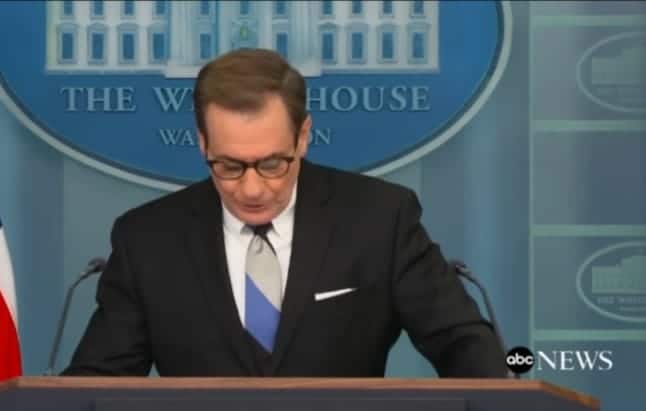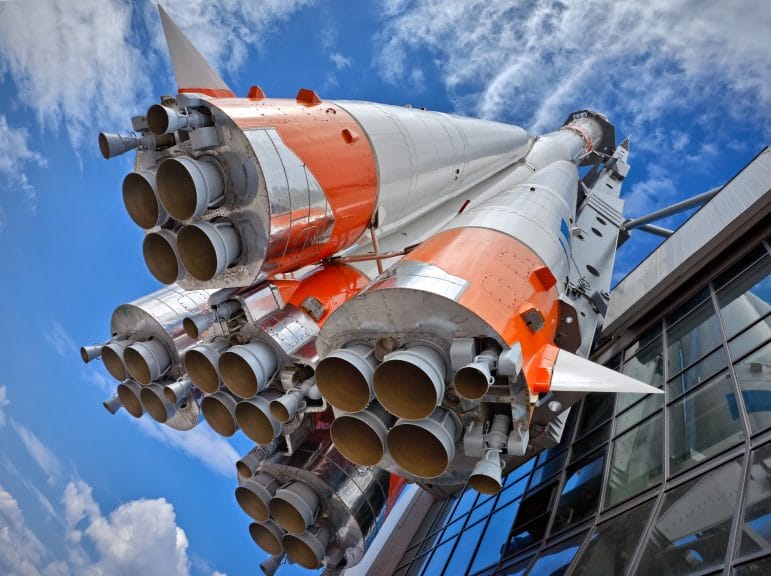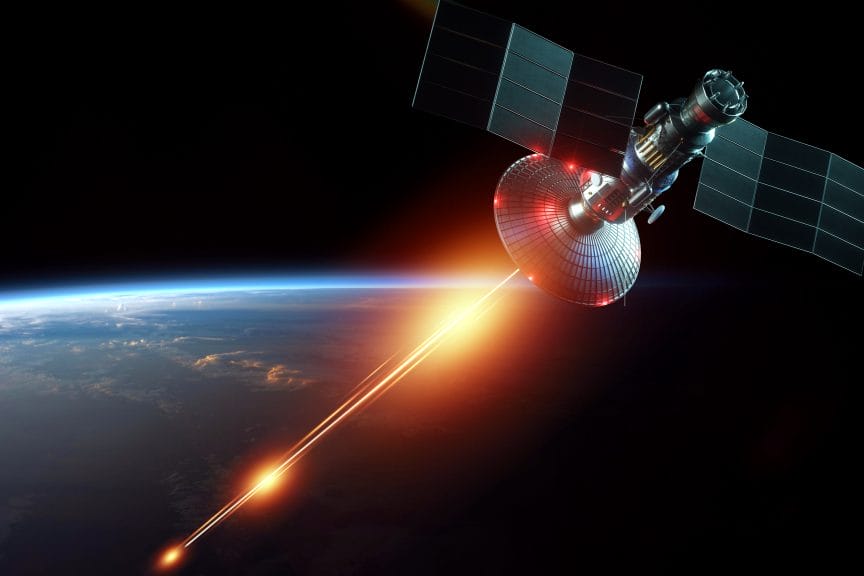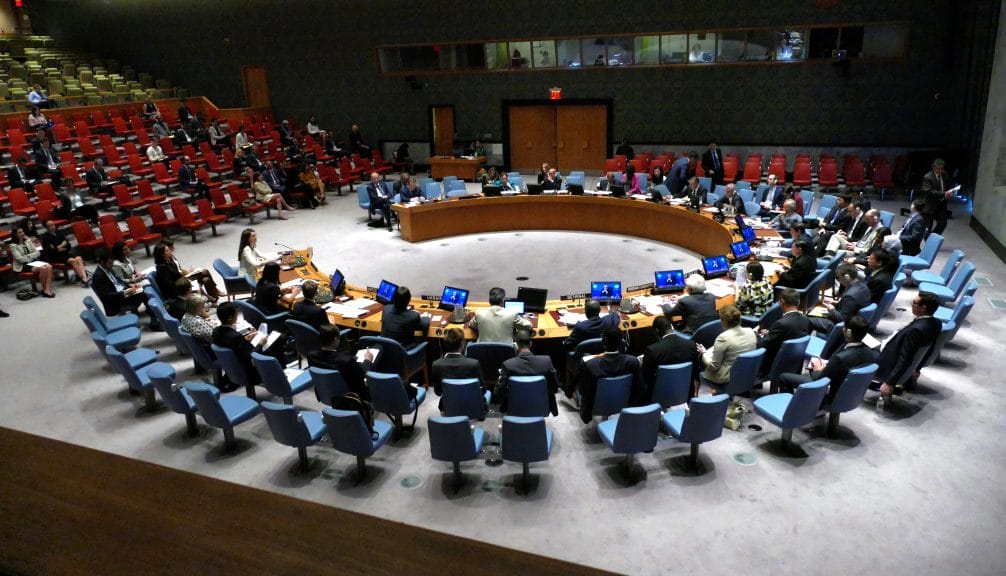US intelligence has confirmed that Russia is in the process of developing a space-based anti-satellite (ASAT) weapon. Although not yet operational, this weapon could dramatically alter the playing field above Earth’s atmosphere
Alert to U.S. Intelligence on Russia’s Advanced Weapons
On February 15, 2024, National Security Spokesperson John Kirby spoke at the press briefing room in Washington DC. He notified the nation of Russia’s development of anti-satellite weapons, saying, “I am limited on the specific nature of the threat. I can confirm that it is related to an anti-satellite capability that Russia is developing.”

According to Kirby, this weapon does not hold the capability “to attack human beings or cause physical destruction here on earth; that said, we’ve been closely monitoring this Russian actively and we will continue taking it seriously.”
While the specifics of the threat remain classified, Kirby’s reassurances about the weapon’s current status and its inability to cause physical harm offer some comfort. Nevertheless, the US continues to monitor the situation closely.
Concerns Over Dependence on Satellite Technology
The United States military’s reliance on satellite technology is well-documented, making the emergence of Russian ASAT (anti-satellite) capabilities a pressing concern for both military strategy and satellite communications. The civilian sector, too, leans heavily on satellite support for essential services, from GPS navigation to weather prediction and beyond, underscoring the versatility of satellite capability across both military and civilian spheres.
The White House has not minced words, labeling the advancements in satellite technology and military politics as “troubling,” and is actively engaging with European allies and Capitol Hill to assess the situation, reflecting the international concern across Europe and the political landscape.
Potential Treaty Violations and Diplomatic Tensions
Deploying a nuclear warhead in space would be a flagrant violation of the 1967 Outer Space Treaty, an agreement that Russia, alongside the United States and other space-faring nations, is a signatory to. John Kirby hopes to “work closely with the intelligence community to conduct a thorough scrub of that intelligence to make sure that we protect sources.”

The Biden Administration has initiated diplomatic outreach to Moscow concerning the ASAT developments, employing diplomacy to address military concerns. However, these overtures have yet to yield substantive dialogue, with Russia dismissing the allegations as groundless.
The United States is recalibrating its space defense strategy, shifting towards smaller and more resilient satellite constellations. Yet the threat of nuclear attacks in space presents a new challenge, one that could necessitate the hardening of satellites against radiation, reinforcing the need for robust space defense measures.
The International Response
In the wake of the United States’ revelations regarding Russia’s potential infringement of the Outer Space Treaty with its new space-based nuclear weapon, the international response has been one of heightened vigilance and concern. ASATS work as a means of communications disruption and could create a cyber war or space war. Allies and other nations have been briefed by the US government, a move that underscores the gravity of the situation and the need for a unified stance against the militarization of space.

The US has spearheaded diplomatic engagement with European allies and other countries, fostering a collective understanding of the risks posed by Russia’s advancements. This effort aims to create a cohesive front and explore potential responses to ensure the continued peaceful use of outer space.
There is an ongoing effort to consolidate an international position that discourages the abandonment of the Outer Space Treaty, which has been a cornerstone of space law and cooperation for over half a century.
Policy and Treaty Enforcement
To uphold international law and prevent the weaponization of space, the United States is rallying like-minded countries like Canada, and other Western nations to express their concerns. These nations are expected to register their stance on the potential violation of the Outer Space Treaty, reinforcing the treaty’s importance and the need for compliance.
The global community is urged to consider the broader implications of Russia’s actions, which could trigger an arms race in space, undermining decades of efforts to maintain space as a conflict-free domain.

The international response is still in its formative stages, with various countries deliberating on the appropriate course of action. Yet, it is clear that there is a shared recognition of the need to address the potential threats posed by Russia’s emerging anti-satellite capabilities.
As intelligence reports continue to surface, the United States and its allies remain at the forefront of efforts to preserve the sanctity of space and avert a new frontier of conflict.
Future Implications
Russia’s development of space-based anti-satellite weaponry has significantly emphasized the delicate nature of space security and the existing reliance on satellite systems, both militarily and civically.
As the international community grapples with the implications of Russia’s actions, the focus must remain on preserving the purpose and integrity of the Outer Space Treaty. By sustaining diplomatic dialogue, fortifying satellite defenses, and fostering international cooperation, we reinforce our collective commitment to a secure and stable space environment.
The actions and steps we take at present will not only shape the trajectory of space policy but also carve out the forthcoming epoch of global security and technological progress. As this story unfolds, we remain hopeful for dialogues between the concerned nations to mitigate potential threats of cyber and space warfare through diplomatic discussions. While allies of the United States have been informed, any collective meetings are yet to be discussed or arranged.






